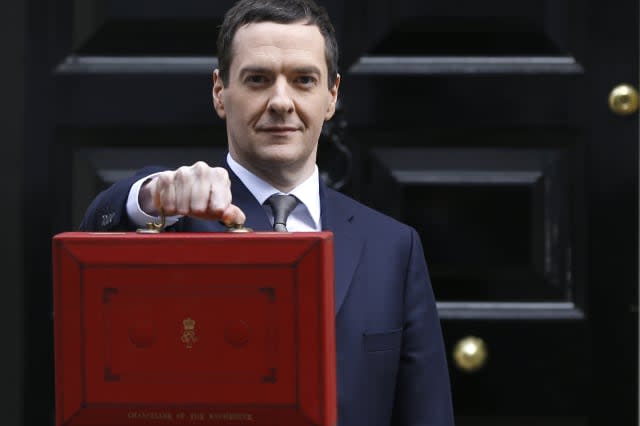Will George Osborne kill pension and childcare schemes?

There's growing concern that George Osborne's Emergency Budget will take a sledgehammer to what's known as 'salary sacrifice' schemes. These have been the backbone of thousands of employer childcare and pension schemes, and any changes could leave people hundreds of pounds worse off every year.
The problem Osborne faces is that he wants to claw back some of the higher rate tax relief on pensions. There are growing rumours that this is likely to be cut from 45% to 30%.
There's not much opposition to this idea, because an estimated 70% of the £34.8 billion claimed in tax relief on pensions is taken by higher or top rate taxpayers. There's a growing sense that the rules unfairly favour the very rich, who could stand to pay a little more tax.
Once he reduces the tax relief on pensions, however, there's a risk that those on large salaries will just sacrifice a chunk of their salary to go directly into their pension instead. Andy James, head of retirement planning, at Towry explains: "As you would avoid making national insurance payments, as well as reduce your tax bill, by diverting some of your gross salary into a pension scheme, the Government would not necessarily be any better off if they were to consider a pension tax relief change without taking salary sacrifice into account."
%VIRTUAL-ArticleSidebar-tax%
Salary sacrifice
This has led to growing speculation that Osborne will kill salary sacrifice: something that former Pensions Minister Steve Webb has warned is on the government's radar in an effort to save the £15 billion that it costs them.
The trouble is that salary sacrifice isn't something that just benefits higher earners who can afford to pay a little more tax. At the moment, it's supporting vital employee benefits, including pension schemes and childcare, for the whole workforce.
In many cases employers offer the chance to sacrifice some of your salary in return for more contributions to your pension. It has proven an attractive way to encourage people to pay more into their pension, so they can afford to retire one day. This is exactly what the government is clamping down on, so many people - including basic rate taxpayers - will suddenly find pension saving less rewarding.
The vast majority of childcare voucher schemes work using this mechanism - where you give up a portion of your salary and take the same value in childcare vouchers. These vouchers are then free of tax and national insurance, and can save basic rate taxpayers almost £1,000 a year in tax (assuming both parents receive vouchers from their employer). Those parents who rely on the scheme will suddenly find themselves significantly worse off.
The government can argue that this is an old system that's gradually being phased out anyway in favour of a scheme where the government will top up 20p for every £1 spent on childcare, up to a maximum of £2,000 per child. However, for a number of people, the new scheme offers far lower savings, and they had been able to continue using the old scheme instead. The end of salary sacrifice will put a stop to this.
On a much smaller scale, a number of employers offer staff a chance to buy a bike and pay for it through salary sacrifice - so they get a tax free bike to enable them to travel to work on two wheels. The scheme would be effectively crushed by an end to salary sacrifice.
The only area where there's a reasonable chance that salary sacrifice may be allowed to stay is where it is used to fund the purchase of a company car. The experts speculate that this may well be allowed to stay because the cars are taxed as a benefit-in-kind, which means car schemes are actually a revenue-raiser for the Treasury. However, there remains a risk that the whole lot will be swept up in the changes - leaving even more people worse off.
Pension stories on AOL Money
Understanding pensions just got easier
Fraud risk for pensioners cashing in annuities
'Now is not the time to sit back': Ros Altmann exclusive





